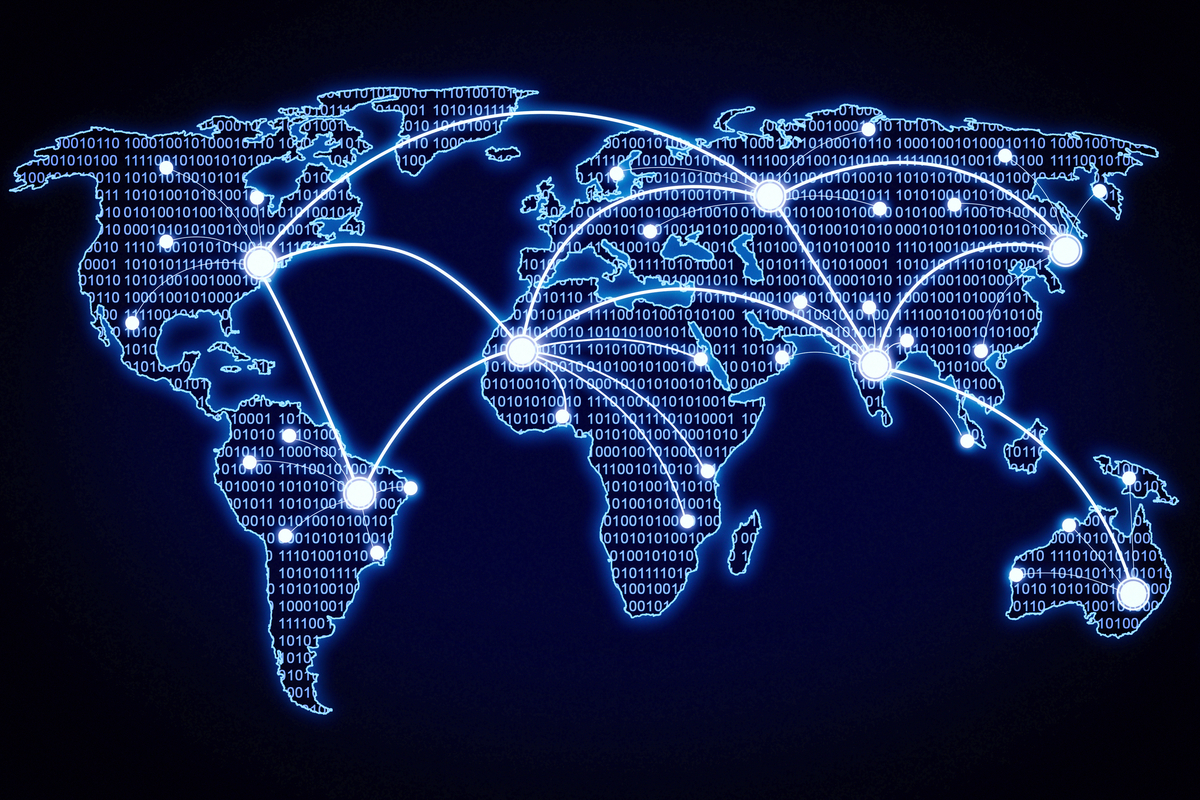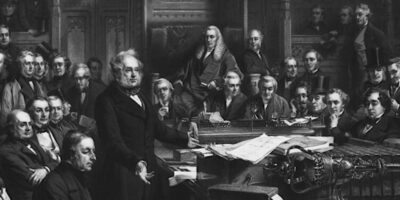Is Trump’s Ultimate Goal Global Free Trade?
The economic case against protectionism is practically invincible. While theoretical curiosities can be described in which an import tariff (or an export subsidy) yields to the people of the home country net economic gains, the conditions that must prevail for these possibilities to have practical merit are absurdly unrealistic.
Yet in their efforts to justify punitive taxes on fellow citizens’ purchases of imports, protectionists regularly trot out these theoretical curiosities. And none is more frequently paraded in public than is the assertion that high tariffs imposed by the home government today will pressure foreign governments to lower their tariffs tomorrow, with the final result being freer trade worldwide.
“Our tariffs are the best means for making trade freer and bringing about what Adam Smith and all free traders have desired: maximum possible expansion of the international division of labor!” protectionists declare with straight faces.
This protectionist apology for tariffs is as believable as is the apology often offered by today’s campus radicals for speech codes and the harassment of certain speakers: “Our insistence on silencing conservatives and libertarians is actually a means of promoting campus diversity and inclusion!”
Both declarations are Orwellian.
Trump Decades Ago
In the case of Donald Trump, the claim that he is at heart really a free trader who raises tariffs today with the aim of bringing about lower tariffs tomorrow — and all because he is committed to achieving free traders’ ideal goal of maximum possible expansion of the international division of labor — is especially preposterous.
Trump has pontificated on trade for decades, and every word out of his mouth clearly reveals a man who knows nothing about the economics of trade and who is as clichéd an economic nationalist as can be imagined.
Behold this line from a 1990 interview he did in Playboy: “The Japanese double-screw the US, a real trick: First they take all our money with their consumer goods, then they put it back in buying all of Manhattan. So either way, we lose.”
Let’s examine this unalloyed gem of economic witlessness.
Overlooking Trump’s outrageous exaggerations, such as his claim that the Japanese buy up “all” of Manhattan, we start by stating an obvious truth: the voluntary purchase of a good is not a transaction in which the buyer is “screwed” or has his or her money “taken.” Instead, the buyer’s money is voluntarily spent. While every person of good sense sees a foreign seller who makes attractive offers to domestic buyers as someone who improves the well-being of each buyer who accepts the offer, Trump sees this seller as a con artist or thief.
And so Trump ignores the value to Americans of the imports we purchase. In typical mercantilist fashion, he believes that the ultimate purpose of trade is to send out as many exports as possible in exchange for as much money as possible — money that in Trump’s ideal world is never spent on imports. His view on this matter is even more bizarre than that of ordinary mercantilists. For Trump, imports are not merely costs that we endure in order to export, they are actual losses. (Although it goes without saying, I’ll say it nevertheless: Trump does not understand that imports are benefits and that exports are costs.)
Furthermore, by describing the money spent on imports as “our money,” Trump reveals his belief that money earned by each American does not belong to that individual but, instead, to the collective.
Also in the fashion of the typical mercantilist, the presumption is that the nation is akin to a gigantic household whose members all share in and collectively own its money. And just as Dad justly superintends little Emma’s and Bobby’s spending to ensure that they don’t dissipate the family’s wealth, Uncle Sam must superintend his subjects’ spending in order to ensure that we don’t dissipate the nation’s wealth.
One other flaw in the above quotation from Trump’s Playboy interview is notable: he believes that foreign investments in America inflict losses on us. He doesn’t pause to consider that when we Americans sell assets to foreigners we regain ownership of some of the dollars that Trump, in his previous sentence, lamented are lost to Americans when we bought imports.
Nor does he ask what the American sellers of these assets do with the sales proceeds. Perhaps we invest some or even all of them. And if so, perhaps these new American investments will prove to be more profitable than are the investments made in America by foreigners. (By the way, contrary to another mercantilist myth, Americans are not made better off when foreigners’ investments in America fail. Quite the contrary.)
An even deeper error infects Trump’s “understanding” of foreign investment: he implicitly — and, once again, like all mercantilists — assumes that the amount of capital in the world is fixed. Only then would it be true that each American sale of assets to foreigners necessarily reduces Americans’ net financial worth (which is presumably what Trump means when he says that “we lose” when the Japanese purchase Manhattan real estate).
Trump Today
Trump continues to this day to warble the same cockamamie protectionist tune. To mention only one of dozens of recent examples, in April of this year, referring to the so-called U.S. trade deficit with China, he asserted that “we have been losing to China for many years, $500 billion a year.” Even ignoring the utter meaninglessness of that in which Trump finds deep significance — namely, bilateral trade deficits — how our voluntary purchases of goods from the Chinese, and how Chinese investments in America, result in our “losing” to China remains inexplicable.
Making matters worse is the release last month of a Treasury Department report that must be read to be believed. It’s a gusher of protectionist goofiness, evincing throughout an astonishing level of confusion about trade, as well as hostility to each country whose producers dare to sell to Americans more goods than American producers sell to that country’s consumers. Hoover Institution economist John Cochrane was being polite in describing this document as “institutionalized nonsense.”
It’s impossible to encounter the president’s incessant complaints and ignorant pronouncements about trade — as well as his inclusion among his advisors of wackadoodle protectionists such as Peter Navarro — and conclude that Trump’s ultimate goal in using tariffs is to achieve the free trade necessary to bring about the greatest possible expansion of the international division of labor.
The many people who today excuse Trump’s protectionism by attempting to camouflage it as bargaining aimed at making global trade freer completely ignore what the man says (and has long said). The only other possibilities are that these apologists are either as economically ignorant as is Trump or they are dishonest stooges. Whatever the explanation, none of these apologies for Trump’s tariffs warrants a smidgen of respect.
For your further edification, behold the Treasury Department’s “watchlist” and long-run agenda.
/sites/default/files/Files/WYSIWYG/blog/10009/2019-05-28-May-2019-FX-Report.pdf











